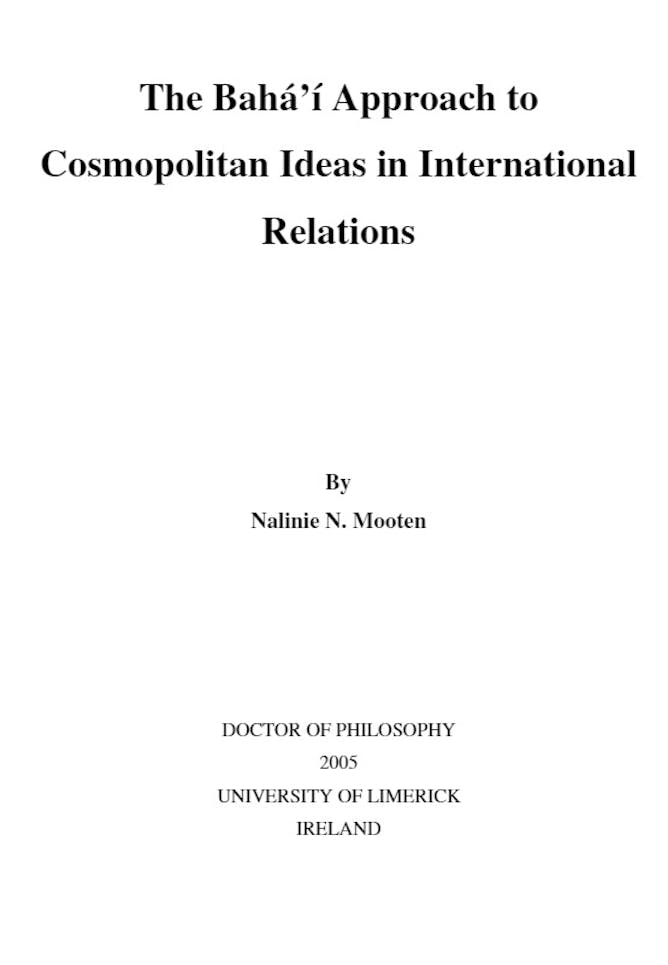Cosmopolitan Ideas in International Relations, PhD Thesis
Cosmopolitanism embodies the desire to move beyond parochial and exclusionary concerns so as to be able to attain to ‘a world embracing vision’. This tradition of thought bases its arguments on the premise that human beings, in all their diversity, constitute a single species, which is termed ‘the oneness of humankind’. This thesis will, firstly, examine Western cosmopolitan thought from its infancy to the present day, depicting it as a tradition of thought that has challenged divisiveness throughout the ages. Secondly, it will offer a Bahá’í cosmopolitan model to International Relations (IR), which reinforces ideas based on essential oneness. It will be shown that the Bahá’í model, which is sacred in nature and Eastern in origin, has significant connections with the Western cosmopolitan tradition (an aspect which demonstrates the universal nature of the cosmopolitan tradition). Consequently, Bahá’í cosmopolitanism can add to the growing cosmopolitan tradition in IR. Specifically, it represents a link to earlier Stoic ideas, and a return and rearticulation of a more ethical/spiritual cosmopolitanism (via its concept of the oneness of humankind) after the sharp materialist turn after the eighteenth century. Bahá’í thinking represents a good starting point for an attempt to reconcile ethical/spiritual cosmopolitanism with material cosmopolitanism. Thus, the Bahá’í cosmopolitan model can broaden the scope and diversity of IR cosmopolitanism, while offering a way of bridging the gap between the two main strands in the cosmopolitan tradition. To another extent, my study supports a growing body of IR that does not accept the state as a given and essentially challenges the claim that IR should be predominantly shaped along dichotomising paradigms – such as realism – which reject the Kantian and cosmopolitan concept of an ‘unbounded future.’
PhD, University of Limerick, Ireland, 2005
| View online | Download |
|---|---|
| Mooten, Cosmopolitan Ideas in International Relations |

Where available the downloads are:
PDF: Same as the online version.
DOCX: Text version of the document.
TOC: Table of contents (PDF) from inside the volume or created separately.
Citing the Afnan Library
When citing the Afnan Library be aware that the digital document (PDF) page number usually differs from the original document's page number. For citing a particular page, click on "View Document on Website" and find the page you wish to cite. Capture the URL of the document from the address line. Add to that the page number of the PDF from the top left of the viewing box. You may also add the page number of the original document in parenthesis. For example: http://www.afnanlibrary.org/inba_v056/, p. 10 (p. 7 of ms.)